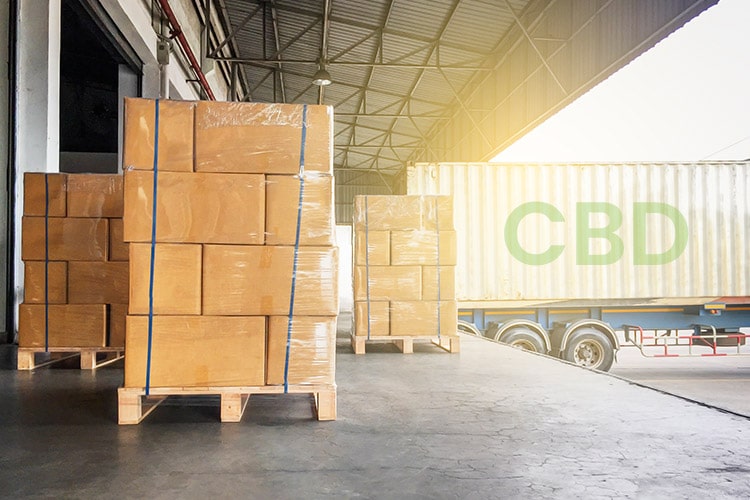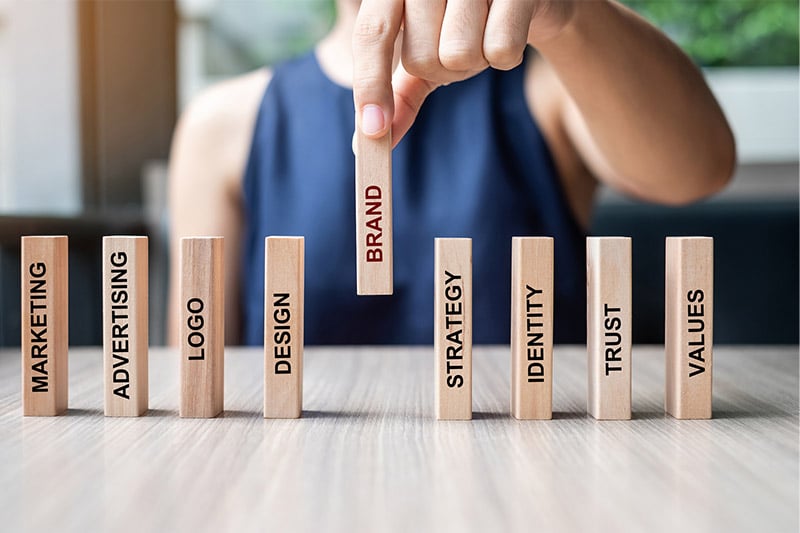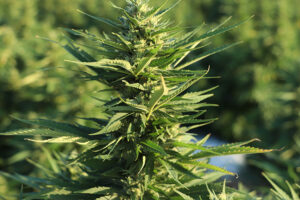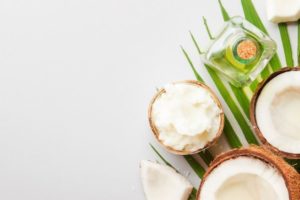The market for CBD oil has been increasing steadily since the legalization of cannabis in many states. As research continues to show the beneficial aspects of CBD, this upward trend will likely continue for a long time.
Why Should You Become a CBD Oil Distributor?
Currently, the CBD market represents an excellent opportunity for many different reasons. Not only can it be a profitable venture, but it’s a way to help people cope with pain and be at the cutting edge of medical science.
Here are just some of the potential reasons to consider becoming a CBD oil distributor:
- Huge market demographic: the stigma surrounding cannabis in the United States has decreased significantly, especially when it comes to pure CBD products. As CBD oil gains acceptance, its medical benefits allow it to appeal to an extensive market. There are products marketed at all age groups, ranging from school children to seniors. There’s even a thriving pet-based market for you to tap into if you prefer. While there are certainly challenges in marketing to a wide array of different demographics, there are also plenty of opportunities to either specialize or provide products to everyone.
- Many marketing opportunities: while many people still use CBD for specific ailments, there’s a growing trend towards CBD as a wellness tool and lifestyle choice. The main advantage of this trend is that people who subscribe to CBD as part of a healthy lifestyle will become customers for life. By targeting both the wellness and health sectors, you can increase your market share and find new avenues for sales and increased profits.
- Growing market: The CBD market continues to grow at an estimated $22 billion by 2024. Unlike many other sectors that are controlled by one or two major retailers, the majority of CBD oil comes from small, independent businesses. This fact makes it relatively easy to find a niche for yourself, either by selling to retailers or directly to the public.
- CBD is a valuable product: the price range of CBD products can vary from $10 for consumables up to $100 for high-end products. Since the CBD market is still relatively new, there’s still a lot of fluctuation in prices, primarily due to massively increasing demand. A smart business owner can capitalize on these market fluctuations before the prices stabilize for good.
Steps to Becoming a Distributor
While the basic idea of becoming a CBD distributor is relatively simple, it’s vital to get your foundations right to prevent potential problems in the future. By following these steps, you’ll have a solid plan and will have covered all of your bases in terms of finance, marketing, and sourcing your product.
Draw Up a Business Plan
Your first step in any business venture is to draw up a business plan. A good plan will identify any potential weaknesses in the market and will give you an idea of whether your business is a viable venture or not.
When you draw up your business plan, keep the following aspects in mind:
- The cost of starting up: regardless of whether you’re opening a physical or online store, you’ll need to have cash upfront to buy inventory, set up your website, and get your marketing strategy going. You’ll also need to consider how you’ll distribute your products and whether you’ll offer free shipping or not. Also, remember that your business won’t be profitable for a couple of months, so you need to have enough money to hold you over until your revenues increase. Your cost will vary depending on your location and your particular strategy, but you should budget to have around $5,000 to $10,000 to start.
- Marketing plan: marketing isn’t just about sending out emails to friends and family. If you have an online store, make sure that you provide informative content, and have a social media presence to build up a loyal following. If you’re planning to sell in person, consider going out to CBD conventions, local festivals, and even your local puppy training class to get an idea of who your customer base is and what they want. By putting yourself and your business out there, you start building up name recognition even before you open up your store.
- How long before you turn a profit? No business starts making money in its first month. Some companies can take up to a year to earn a stable profit and start paying back on the initial investment. One way to get a good idea of your financial future is to use business software like Xero or Wave, which can track your potential business performance. It’s always a good idea to put some money aside from your capital to help you weather the first couple of months until you get on your feet.
Business Name
The first step to building a recognizable and trustworthy brand is to have a reliable business name. While naming your business “xxxWeedLordGoku420xxx” may be hilarious, it’s not going to do you any favors when it comes to selling your products.
With so many distributors already online, it can be quite tricky to find a name that stands out. You want your name to be memorable and unique, but also easy to pronounce and remember, and ideally something that explains what sets you apart from the competition.
Set Up a Business Bank Account
Having a separate bank account for your business makes it significantly easier to manage your finances and taxes. Many banks and credit unions have business-specific accounts that often offer advantages like lower transaction fees, a business credit card, and the ability to move money around as you see fit.
Get Your Retail Space Ready
While the small details of opening up a physical shop and opening up an online shop may differ, the basic principles are the same. The main advantage of a physical store is that you can directly interact with customers, which fosters a sense of loyalty and community that can be very valuable. However, running a physical store is significantly more expensive and time-consuming than setting up a website (which you’ll still have to do as well).
There are several factors that you need to consider before opening up a store. Firstly, do you have any competition in your area? Is there a lot of foot traffic, or will you be relying on repeat customers? How much is the rent, and what obligations will you have while you lease the space?
Many CBD retailers start as online-only and then branch out into the physical space when they can afford it. Running both is a lot more work and will cost a lot more, so be sure you’re in the right place before jumping into the deep end.
If you decide to stick to online-only, now is the time to get your website up and running. Partner with a web hosting service and to make sure your site is ready to go live at a moment’s notice. If possible, do some focus testing of your website to identify any potential problems before you go live.
Get Your Business Reseller’s License
While you don’t need a specific license to sell CBD products, you’ll still need to find out what your state’s regulations are about reselling products online. If necessary, speak with your state and town board to see what licenses you need to resell products, either online or in a physical retail space.
Obtaining licenses can take a long time, so try to get the process started as early as you can. That way, you can get everything ready, and when you get your license, you can hit the ground running.
Choose Your Products
There are thousands of CBD products on the market, ranging from gummies to creams to inhalers, each with their set price point and specific target market. You need to decide whether you’ll offer bespoke high-end CBD products or plan to sell gummies and oils in bulk, or a mix of both.
When you first go live, avoid the temptation to offer as many products as you can. You may find yourself stuck with expensive inventory that you simply can’t move. Stick to popular and well-known CBD products and expand your list as necessary. If you notice people often request a particular item, expand your offerings to include that item.
It can be tricky to find the balance between offering too few or too many products, so keep an eye out for customer feedback and adjust accordingly.
Finding the Right Supplier
The main challenge that is unique to CBD distribution is the fact that much of it is unregulated by entities like the FDA. This lack of regulation means that getting consistently high-quality CBD oil can be a challenge, especially if you don’t know what warning signs to look for in a seller.
Current estimates suggest that over 70% of CBD products in the US have misleading information, meaning that the concentration on the label isn’t what’s in the bottle. Mislabelling can have serious health consequences, especially for people with medical problems. If you don’t want to pass on poor-quality CBD oil, you need to be constantly vigilant and find a reputable supplier.
Narrow Down Your Options
A quick way to eliminate many of the CBD suppliers is to look for the following:
- CBD extracted from hemp grown in the US, which contains less THC than other varieties of hemp
- Ethanol or CO2 extraction, which produces fewer contaminants while keeping most of the CBD intact
- Regular test results from third-party labs
- Reasonable prices that aren’t too good to be true, since high-quality CBD oil is relatively expensive to produce.
If you can afford it, we also recommend sending samples from your suppliers to independent labs to confirm any lab tests provided by the supplier.
These few factors will help you narrow down your list of potential suppliers. Once you have a list of about ten or fewer suppliers that meet your needs and appear to be reputable, it’s time to do even more research to narrow your choice down to one.
Get References
Word of mouth is a powerful tool, and it’s a good idea to chat with other CBD resellers or distributors to get an idea of which companies are reputable and which ones to avoid. Never use a supplier that isn’t willing to provide references, since they probably have something to hide.
You should also make use of online resources like industry pages and associations to identify reputable sellers. The National Cannabis Industry Association and National Hemp Association will often provide distributor references and names of reliable suppliers.
A final test is to check out a potential supplier’s social media presence. Many suppliers work very hard to market and promote their brand, and if you partner up with one that has a robust social media presence, that’s half of your marketing done for you. It’s also a great space to identify any potential issues with the supplier’s products.
Keep Logistics in Mind
Once you partner up with a supplier, their success or failure can have a direct impact on your business. Don’t be afraid to talk to suppliers about their supply chain and their fall-back plans if their supply gets interrupted. If you can’t get your products on time, you’ll be the one left with disgruntled and unhappy customers.
When speaking to suppliers, also evaluate their customer service and how they treat you. While a supplier’s treatment of a potential lead isn’t indicative of how they’ll treat you once you’ve signed on, it can provide you with a good idea of how the company operates.
Final Thoughts of Opening Your Own CBD Oil Distribution Empire
With the CBD boom still on the horizon, now is an excellent time to get in on the action. As more and more small CBD distributors open up shop, you’ll have to consider what your company brings to the table carefully. If you want to make your business stand out by selling high-quality, reliable CBD oil, get in touch with us today.
FAQs About Becoming A CBD Oil Distributor
Question: What is the benefits of becoming a CBD oil distributor?
Answer: Currently, the CBD market represents an excellent opportunity for many different reasons. Not only can it be a profitable venture, but it’s a way to help people cope with pain and be at the cutting edge of medical science.
Question: What are the necessary steps to become a CBD oil distributor?
Answer: Depending on your area or state, there would be different laws or regulations regarding CBD oil distribution. But, generally speaking you should have a business name, a business plan, and license to sell your product.
Question: Is it ok only have CBD online shop and not a physical store?
Answer: Many CBD retailers start as online-only and then branch out into the physical space when they can afford it. Running both is a lot more work and will cost a lot more, so be sure you’re in the right place before jumping into the deep end.
Question: How to find the right supplier of CBD oil?
Answer: One of the tips is to determine the type of CBD you want to market then narrow your options. You could also try to ask other resellers or distributors about your prospects.








